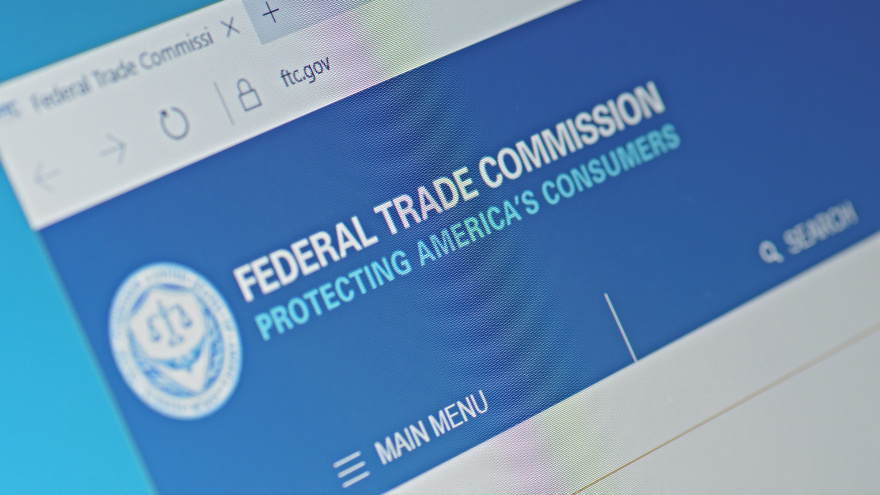Attorneys general are continuing to implore the Consumer Financial Protection Bureau to be an aggressive regulator.
Through a letter delivered on Wednesday, New York attorney general Barbara Underwood — part of a coalition of 14 AGs — called on the CFPB and acting director Mick Mulvaney to continue protecting the rights of consumers against credit discrimination under the Equal Credit Opportunity Act (ECOA). The attorneys general share authority with the CFPB to enforce regulations regarding the ECOA and lead antidiscrimination efforts in their own states. As such, they are calling on the CFPB to continue enforcing the ECOA, including its provision for disparate impact liability.
The letter was signed by the attorneys general of North Carolina, California, Illinois, Maine, Maryland, Massachusetts, Minnesota, New Jersey, New York, Oregon, Rhode Island, Vermont, Virginia and the District of Columbia.
“The Equal Credit Opportunity Act was enacted because of our country’s sordid history of credit discrimination — and it’s unbelievable that the CFPB is considering refusing to use it to protect consumers,” Underwood said. “As we’ve shown, my office won’t hesitate to uphold the law and protect those we serve, even if the CFPB won’t.”
The ECOA is the principal federal antidiscrimination law for all forms of credit except home mortgage lending. It prohibits creditors from discriminating against consumers on the basis of race, color, religion, national origin, sex, marital status and age.
The ECOA also protects people from discriminatory intent and unconscious prejudices that do not mention race, color, religion, national origin, sex, marital status, or age, but still have a discriminatory effect that prevents equality of opportunity; this is called disparate impact liability.
The state officials added the CFPB is charged with oversight and enforcement of federal laws relevant to nondiscriminatory lending and credit practices, which includes interpreting the ECOA.
In their letter, the attorneys general say they “will not hesitate to uphold the law if CFPB acts in a manner contrary to law with respect to interpreting ECOA.”
Equifax is looking to help banks navigate one of the most complicated accounting changes ever instituted.
On Wednesday, Equifax unveiled its SmartReserve offering to help banks and financial institutions registered with the Securities and Exchange Commission meet the new Current Expected Credit Loss (CECL) standards ahead of the deadline that’s set for the first quarter of 2020.
Equifax reiterated that the new regulation requires significant changes to the data a bank or provider maintains and analyzes, and involves a much deeper level of modelling, analysis and reporting than what has previously been required.
SmartReserve is powered by Equifax Credit Trends, which provides data to help support new CECL standards with respect to customers. The solution can forecast reserves based on this new modelling standard.
“This is new territory for many lenders as they may not have the infrastructure to support these large amounts of data, and mid-tier and smaller banks and credit unions and lenders may not have the capacity to perform the modeling in-house,” said Amy Graybill, vice president of enterprise insights and core data products at Equifax.
“SmartReserve provides the assistance lenders need to help protect their business against non-compliance with new CECL standards, along with historical pre and post-recession data that is needed to accurately forecast future credit losses and calculate required reserves,” Graybill continued.
The company highlighted that Equifax SmartReserve already has provided customers with information to help CECL forecasting by utilizing the extensive data. The data has helped companies evaluate their expected loss and tune their loss reserves.
For small to mid-size financial institutions that may need an outside resource to assist with modeling requirements, Equifax and Moody’s partner together in delivering a comprehensive solution.
“This is a significant departure from current practices and is understandably causing anxiety among both lending institutions and auditors,” said Cristian deRitis, senior director of consumer credit analytics at Moody’s Analytics. “Switching to a measure of potential lifetime loss will not only increase banks’ allowances for loan and lease losses (ALLL), it will dramatically change the timing of those provisions.
“Whereas today a lender can use the interest and principal payments collected early on in the life of new loans to build capital in anticipation of defaults, under CECL they’ll need to add to their reserves before having collected even $1 in loan payments. This could change the economics of the transaction and lead to higher fees or interest rates,” deRitis went on to say.
Additionally, SmartReserve uses the power of Equifax Credit Trends logic to enable the linking of trades over time and life-of-loan forecasting that includes 100 percent of the consumer database where consumers have at least one trade along with key consumer risk profile attributes at time of origination.
The offering also can link trades over time to enable vintage curves, updates and forecasting based on loan and consumer profiles to facilitate critical life-of-the loan forecasting, along with support from Equifax business intelligence and credit data experts.
Embellishing “stips” to enhance the figures sent to finance company underwriting departments landed a quartet of dealerships in trouble with a top federal regulator.
This week, the Federal Trade Commission charged a group of four dealers operating in Arizona and New Mexico, near the border of the Navajo Nation, with a range of illegal activities, including falsifying consumers’ income and down payment information on vehicle financing applications and misrepresenting important financial terms in vehicle advertisements.
Officials pointed out this development is the FTC’s first action alleging income falsification by dealers.
The complaint also names the dealerships’ owner and manager, Richard Berry, as a defendant; and owner and president, Linda Tate, as a relief defendant.
According to the complaint, since at least 2014, Tate’s Auto has sought to increase its sales by falsifying consumers’ monthly income and down payments on financing applications and contracts submitted to third-party financing companies. The four dealerships named in the complaint are Tate’s Auto Center of Winslow, Tate’s Automotive, Tate Ford-Lincoln-Mercury and Tate’s Auto Center of Gallup.
The FTC charges that, during the sales process, Tate’s Auto asked consumers to provide personal information — including their name, address and monthly income — and told consumers they would submit the information to financing companies. According to the complaint, however, instead of using consumers’ actual information, in many cases Tate’s Auto falsely inflated the numbers, making it appear that consumers had higher monthly incomes than they really did.
Tate’s Auto often inflated the amount of a consumer’s down payment as well, according to the complaint.
The complaint also alleges that Tate’s Auto representatives often prevented consumers from reviewing the income and down payment information on the forms, such as by rushing consumers through the process of reviewing and signing the financing applications, having consumers fill out the forms over the phone and failing to give them the income and down payment portion of the application before they signed.
In other cases, the FTC said Tate’s Auto allegedly altered financing documents after consumers signed them, without their knowledge. Such consumers, the FTC alleges, often were approved for financing based on the false information Tate’s Auto provided.
As a result, financing companies extended credit to consumers who defaulted at a higher rate than qualified buyers. Many of the affected consumers are members of the Navajo Nation, according to the FTC.
The complaint also alleges that Tate’s Auto’s advertising deceived consumers about the nature and terms of financing or leasing offers. For example, Tate’s Auto allegedly advertised discounts and incentives to consumers without adequately disclosing limitations or restrictions that would prevent many customers from qualifying for them.
Finally, the FTC alleges that Tate’s Auto’s social media ads violated federal law by failing to disclose required terms.
The complaint charges Tate’s Auto with violating the FTC Act, the Truth in Lending Act (TILA) and the Consumer Leasing Act (CLA). The FTC is seeking an injunction barring the defendants from such practices in the future.
According to the FTC, acting as owner of the four dealerships, Barry formulated, directed, controlled, had the authority to control, or participated in Tate’s Auto’s allegedly illegal conduct.
The FTC charged that Tate has received hundreds of thousands of dollars from the other defendants, including funds directly connected to the alleged unlawful conduct.
The commission vote authorizing the staff to file the complaint was 5-0. The complaint was filed in the U.S. District Court for the District of Arizona.
“Buying a car is one of the biggest purchases consumers make. When consumers tell an auto dealer how much they make and how much they can pay upfront, the dealer can’t turn those facts into fiction,” said Andrew Smith, director of the FTC’s Bureau of Consumer Protection.
“The FTC expects auto dealers to be honest with consumers from the first advertisement to the final purchase,” Smith added.
The FTC reiterated that it files a complaint when it has “reason to believe” that the law has been or is being violated and it appears to the regulator that a proceeding is in the public interest. The case will be decided by the court.
Dealership and finance company managers have another free education option thanks to online availability.
This week, Compli, a provider of automated HR and compliance program solutions, introduced CMS University. This four-course series of free masterclass-level online seminars focuses on how to build a best-practice compliance management system (CMS).
While the series is ideal for finance companies, Compli insisted the content is applicable to additional regulated businesses, including automotive dealerships.
CMS University evolved out of recurring conversations Compli had with business executives who knew they needed a CMS but didn’t know how to set one up or even what one looked like.
“Nobody likes to read a 1,500-page textbook. But that’s about how much material regulators expect you to know about building a compliance management system,” said Brian Larson, consumer finance director at Compli. “That’s when the light bulb went off, and we decided to jump in and make it easier for companies to implement a CMS by sharing our vast industry knowledge for free.”
Each of the four videos in the online seminar series are an hour or less in length and cover executive oversight, compliance program structure, consumer complaint response and internal audit preparation. Courses include easy-to-follow video lectures led by attorneys and industry veterans, instructional readings and the ultimate Prep for the “Test” Guide.
Larson emphasized the materials support companies' efforts to build a sound CMS that can better withstand regulatory scrutiny.
“Our program is not just for setting up a CMS. It also helps companies with an established CMS to easily audit their program to discover where they need to focus their resources,” Larson said.
Compli acknowledged that CMS University is not a degree-granting institution offering accredited courses. However, Compli explained that what it does offer is highly specialized insider compliance knowledge and expertise that anyone who handles compliance at their company can benefit from.
In addition to its online masterclass, Compli helps promote compliance education with free articles, webinars and other downloadable resources. To access those materials, visit Compli’s resource library.
To enroll in CMS University for free, go to this website.
While it’s been more than three months since individuals and businesses had to file their federal income forms, the Internal Revenue Service warned that many taxpayers have encountered individuals impersonating IRS officials — in person, over the telephone and via email.
The IRS reiterated that the agency initiates most contacts through regular mail delivered by the United States Postal Service.
“Don’t get scammed. We want you to understand how and when the IRS contacts taxpayers and help you determine whether a contact you may have received is truly from an IRS employee,” agency officials said.
However, the IRS acknowledged there are special circumstances in which the IRS will call or come to a home or business, such as when a taxpayer has an overdue tax bill, to secure a delinquent tax return or a delinquent employment tax payment, or to tour a business as part of an audit or during criminal investigations.
Even then, the agency said taxpayers will generally first receive several letters (called notices) from the IRS in the mail.
Officials went on to note that the IRS does not:
— Demand that you use a specific payment method, such as a prepaid debit card, gift card or wire transfer. The IRS will not ask for your debit or credit card numbers over the phone.
— Demand that you pay taxes without the opportunity to question or appeal the amount they say you owe. Generally, the IRS will first mail you a bill if you owe any taxes. You should also be advised of your rights as a taxpayer.
— Threaten to bring in local police, immigration officers or other law-enforcement to have you arrested for not paying. The IRS also cannot revoke your driver’s license, business licenses, or immigration status. Threats like these are common tactics scam artists use to trick victims into buying into their schemes.
Risk management firm KPA Services recently announced that it closed on the acquisition of California-based Auto Advisory Services (AAS).
The firm highlighted that its transaction that came to fruition on May 31 strengthens KPA’s F&I offering through the addition of new premium services, including on-site service drive audits and advertising compliance reviews, as well as an F&I compliance hotline that is designed to assist dealers with common day-to-day compliance issues.
“KPA is innovative, proactive and highly experienced,” said Rob Cohen, chairman and sole shareholder of AAS. “These are qualities I have yet to see in other companies purporting to offer compliance solutions to dealers. Put simply, KPA has become the clear leader in dealership compliance.”
KPA is a leader in cloud-based environmental health and safety (EHS) risk management solutions and closed-loop on-site audit services that mitigate potential accidents and the costly ramifications of non-compliance with state and federal EHS regulations.
In addition to EHS, KPA’s comprehensive automotive solution covers operational workflow as well as regulatory risks associated with F&I and human capital management (HCM). The company focuses on mid-market companies in the automotive, manufacturing, distribution and logistics, and insurance industries.
Since 1975, AAS has been providing California dealerships with highly specialized sales, finance, service drive and advertising compliance products and services. AAS personnel consists of extensively trained attorneys and former state agency inspectors and investigators.
“AAS has been an outstanding provider of sales and F&I services for more than 40 years, helping their clients reduce exposure to regulatory fines and litigation,” KPA chief executive officer Vane Clayton said.
“The addition of the AAS solutions to KPA means that the automotive market now has a single showroom to shop solution to solve all their operational, regulatory and compliance risks,” Clayton added.
As the Consumer Financial Protection Bureau continues to modify how it operates, more than a dozen state attorneys general are pushing the CFPB not to change its practices regarding consumer complaints.
New York attorney general Barbara Underwood recently led a coalition of 14 attorneys general in urging the CFPB to retain its public database of consumer complaints. Underwood explained the joint letter emphasizes the numerous benefits of a public database to state law enforcement, honest businesses and the public at large.
Underwood noted the letter was in response to a March 1 request for information (RFI) issued by the CFPB, seeking comments from the public “to assist the bureau in assessing potential changes that can be implemented to the Bureau’s public reporting practices of consumer complaint information.”
Underwood said, “The CFPB public database represents an admirable commitment to transparency. By moving to eliminate public access to the database, the Trump administration is yet again putting corporate interests over those of consumers, shielding corporate wrongdoing from public view.”
The letter was led by Underwood and also signed by the attorneys general of:
— California
— Delaware
— Hawaii
— Illinois
— Iowa
— Maryland
— Massachusetts
— Minnesota
— North Carolina
— Oregon
— Pennsylvania
— Vermont
— Washington
The letter also was signed by the Hawaii Office of Consumer Protection.
The attorney general actions arrived on the heels of the CFPB disbanding its Consumer Advisory Board; a move that members called a “firing.”
Along with the RFI Underwood referenced, the bureau also issued another Request for Information on its handling of consumer complaints and inquiries in April. The bureau is seeking comments and information from interested parties to assist the CFPB in assessing its handling of consumer complaints and consumer inquiries and, consistent with law, considering whether changes to its processes would be appropriate.
As of April, the bureau said it has received 1.5 million consumer complaints.
“Though the bureau is required to establish reasonable procedures to provide timely responses to consumer complaints and consumer inquiries, certain aspects of the complaint and inquiry handling processes were developed in furtherance of those statutory requirements but are not directly mandated by statute,” officials said in the April RFI.
“Mindful of the bureau’s statutory objective to provide consumers with timely and understandable information about consumer financial products and services so they can make responsible decisions, as well as its statutory obligations to establish reasonable procedures to provide consumers with timely responses and centralize the collection of consumer complaints about consumer financial products or services, the bureau has used feedback from a variety of stakeholders to establish and refine its processes over time to improve stakeholders’ experience, handle large volumes of complaints and inquiries and increase overall efficiency,” officials went on to say.
Since the complaint database went live on June 19, 2012, Underwood’s office reiterated that more than a million consumers have filed complaints, and 97 percent of these consumers received a response from the company that was the subject of their complaint.
In the joint letter, the attorneys general underscore that:
• The large number of complaints and functionality of the database — which can allow users to narrow searches by company, state, product, etc. — have enabled their offices to identify patterns of widespread misconduct that have led to investigations into debt collection companies, student loan servicers, for-profit universities, and other companies whose misconduct was initially brought to our attention through a critical mass of complaints filed with the CFPB.
• The database arms consumers with information so they can make informed decisions and avoid bad actors in the marketplace.
• The database benefits responsible companies because it allows them to better understand their customers, and provides them the opportunity to identify problems and take corrective action.
While auto financing wasn’t specifically mentioned, the bureau is still sharing some details about the complaints it’s receiving. The latest complaint snapshot offered by the CFPB just after Memorial Day focused primarily on debt collection.
Since July 2011, the bureau said it has received approximately 400,500 debt collection complaints, which is 27 percent of the total complaints the agency has received.
“Some common themes emerged in our analysis of these complaints,” the CFPB said. “For example, some people reported that there were debts on their consumer credit reports, but that they did not have prior written notice of the existence of the debt.
“Some people stated in their complaints that they felt uncomfortable disclosing personal information to people who called asking for it because they were not sure whether the person calling was a legitimate debt collector,” the bureau continued. “People also complained about the communication tactics companies used when attempting to collect a debt.”
The CFPB added that credit or consumer reporting was the most-complained-about financial product or service category in March as 37 percent of the approximately 30,300 complaints received during that month revolved around credit or consumer reporting.
Debt collection was the second most-complained-about consumer product, accounting for 27 percent of the monthly total.
The third most-complained-about financial product or service was mortgages, representing about 10 percent of complaints.
The CFPB’s public complaint database was created as part of a lengthy, thorough, and thoughtful process in which the CFPB solicited and considered the views of all stakeholders, including industry groups. Moreover, as set forth in the letter, a public database of consumer complaints is consistent with the CFPB’s statutory mandate contained in the Dodd-Frank Wall Street Reform and Consumer Protection Act, which charged the CFPB with, among other things, collecting consumer complaints, publishing information relevant to consumer financial products and services, providing consumers with information needed to make informed financial decisions, and ensuring transparency in the consumer financial products and services market.
Getting back to the action led by Underwood, her office pointed out that the 14 attorneys general who submitted the letter collectively represent more than 131 million Americans, or 40 percent of the U.S. population.
According to a news release distributed by Underwood’s office, “The attorneys general expressed concern that the CFPB carefully consider facts and arguments in favor of continuing the public database, particularly in light of press reports indicating that acting director (Mick) Mulvaney may have already made up his mind to eliminate the database. In a recent speech to the American Bankers Association, acting director Mulvaney suggested that the decision to shut down the database was a foregone conclusion.”
The compliance education and training offerings from Recovery Industry Services Company (RISC) just became much more robust.
On Tuesday, RISC announced the acquisition of Recovery Standard Training, which is curriculum created and maintained by Hudson Cook.
Officials highlighted the program will soon be added to RISC’s CARS certification and continuing education programs. Hudson Cook will continue to support and update the Recovery Standard curriculum and provide oversight and updates to the CARS curriculum, ensuring third-party vendors and lenders are kept up-to-date with the latest government regulations.
“We are excited about this transaction, which represents unification of robust education curriculum offered to the collateral recovery industry,” RISC founder and chief executive officer Stamatis Ferarolis said.
“The course material and software platform developed by Recovery Standard adds extensive value to RISC’s industry leading CARS certification program,” Ferarolis continued. “This acquisition helps standardize vendor training and certification allowing repossession companies, national forwarders and lenders access to the most comprehensive option for ongoing compliance training.”
Ferarolis went on to stress that auto finance companies expect third-party vendors to meet ongoing compliance standards while ensuring agents are annually trained and comprehensively vetted.
The addition of Recovery Standard Training, which comes one year after RISC’s acquisition of Recovery Compliance Solutions’ vendor vetting services, reinforces RISC’s commitment to consistently offer the best-in-class vendor vetting and compliance training.
Recovery Standard Training materials will be added to RISC’s CARS continuing education program over the course of the next three months. In addition, RISC will add a new course for finance companies, covering skip tracing, cyber security and repossession agent scenarios.
“I am pleased to join forces with RISC to deliver the most up-to-date compliance curriculum for third-party vendors and automotive lenders. RISC’s advocacy for professional repossession demonstrates a commitment to compliance, much like our mission at Recovery Standard Training, making it a clear choice to move forward with this opportunity and bring more unification to the collateral recovery industry,” said Brad Shrader, chief executive officer of Recovery Standard Training.
Key findings of BillingTree’s sixth annual Operations and Technology Survey involving collections, recoveries and more, are showing just how much of an impact all of the widespread changes at the Consumer Financial Protection Bureau are leaving on service providers.
For the first time in the history of the survey, BillingTree found that concerns over CFPB regulations ranked lower than all other compliance issues, including payment card industry (PCI) compliance, mandates from NACHA – The Electronic Payments Association, as well as obligations under the Electronic Fund Transfer Act (EFTA) and Regulation E.
BillingTree contends this overall trend is consistent with prior survey predictions after the emergence of the PCI 3.0 compliance rule changes in 2015.
“However, with CFPB plans to release a proposed rule concerning collectors’ communications practices and consumer disclosures (involving the Fair Debt Collection Practices Act), there is a chance this area will experience further disruption,” survey orchestrators said.
Beyond compliance concerns, BillingTree highlighted survey results — collected from more than 150 agencies of all sizes — cited innovative technologies to expand payment channels and enhance collection effectiveness as top factors for growth.
Survey results mentioned the growing consumer demand for mobile payments is driving change, with text payments cited by respondents as the most desired payment option.
However, rather than mobile text to pay being held back by technology limitations, BillingTree learned it is the perceived compliance risks putting the brakes on adoption. This technology out-ranked agent-assisted payment authorization and notification as the payment option carrying the greatest compliance risk.
One respondent stated, “These technologies are available, but with no safe harbor.”
When asked about future technology plans, the survey showed mobile device presentment and payment ranked second at 29 percent, just behind online portals at 31 percent.
Alternative forms of payment including PayPal, e-cash and Bitcoin ranked high, with 24 percent of respondents considering adoption, which suggests recover organizations are ready to embrace consumer technology trends and expand payment channels.
Consistent with prior years, the BillingTree survey indicated Interactive Voice Response (IVR) adoption continues to grow, with 36 percent relying on IVR compared to 28 percent in 2017.
BillingTree will be presenting the survey findings during a free webinar on Thursday beginning at 1 p.m. ET. Registeration can be completed here.
To request a complimentary copy of the 2018 ARM Industry Operations, Technology & Payments report, go to this website.
The 2013 indirect auto lending guidance from what was previously called the Consumer Financial Protection Bureau now is officially off the books.
On Monday, President Trump signed into law a bipartisan Congressional resolution disapproving a rule that was in the form of guidance issued by the regulator that now calls itself the Bureau of Consumer Financial Protection about indirect auto finance company compliance with the Equal Credit Opportunity Act (ECOA) and its implementing regulation.
“I thank the President and the Congress for reaffirming that the bureau lacks the power to act outside of federal statutes,” acting director Mick Mulvaney said in a statement released by the regulator. “As an executive agency, we are bound to enforce the law as written, not as we may wish it to be. In this case, the initiative that the previous leadership at the Bureau pursued seemed like a solution in search of a problem. Those actions were misguided, and the Congress has corrected them.
“I want to make it abundantly clear that the bureau will continue to fight unlawful discrimination at every turn. We will vigorously enforce fair lending laws in our jurisdiction, and will stand on guard against disparate treatment of borrowers,” Mulvaney continued.
“I am heartened that the people, through their elected representatives, have corrected this instance of bureau overreach. I look forward to working with the Congress to bring much-needed structural accountability to the Bureau so that our cherished democratic principles are supported and the rights of every American consumer are always protected,” Mulvaney went on to say.
The stroke of Trump’s pen came with cheers from the industry.
“This is a great day for consumers, as Congress and the president have helped to preserve their ability to receive auto loan discounts from local dealerships,” National Automobile Dealers Association president Peter Welch said in this blog post.
“NADA congratulates the U.S. House and Senate for their focus and perseverance on this issue, and the president for signing the new law to protect consumers,” Welch continued.
American Financial Services Association president and chief executive officer Chris Stinebert shared a similar sentiment.
“We welcome the action of Congress and the President,” Stinebert said in a statement sent to SubPrime Auto Finance News. “We are working with our members to assess the impact on the vehicle financing industry as it continues to fully comply with all state laws and regulations on vehicle financing.”
Stinebert likely will be talking about this development and more when he appears during the 22nd annual Non-Prime Auto Finance Conference hosted by the National Automotive Finance Association beginning on May 30 in Fort Worth, Texas.
Before the measure landed on Trump’s desk, the House earlier approved S.J. Res. 57, which was written to overturn the much-criticized guidance document under the authority of the Congressional Review Act, by a bipartisan 234-175 majority. The Senate had already passed the joint resolution on April 18 by a 51-47 margin.
Mulvaney went into more detail regarding the impact of what Trump and federal lawmakers have done.
“The enactment of this Congressional Review Act (CRA) resolution does more than just undo the bureau’s guidance on indirect auto lending. It also prohibits the bureau from ever reissuing a substantially similar rule unless specifically authorized to do so by law,” Mulvaney said.
“Given a recent Supreme Court decision distinguishing between antidiscrimination statutes that refer to the consequences of actions and those that refer only to the intent of the actor, and in light of the fact that the bureau is required by statute to enforce federal consumer financial laws consistently, the bureau will be reexamining the requirements of the ECOA,” he continued.
“Today’s action also clarifies that a number of bureau guidance documents may be considered rules for purposes of the CRA, and therefore the bureau must submit them for review by Congress,” Mulvaney went on to say.
“The bureau welcomes such review, and will confer with Congressional staff and federal agency partners to identify appropriate documents for submission,” he added.












